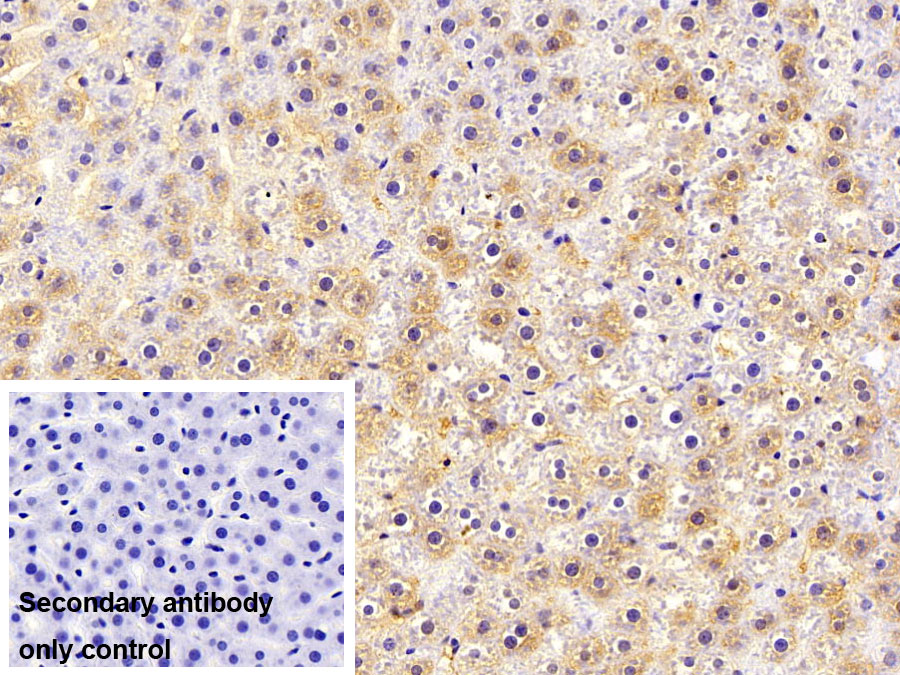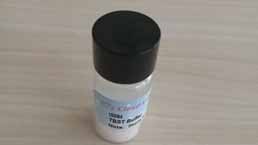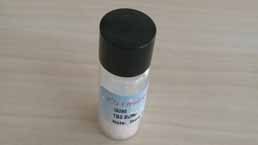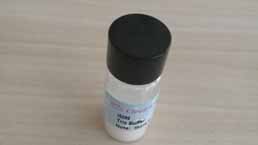Polyclonal Antibody to Angiotensin 1-7 (Ang1-7) 

- UOM
- FOB US$ 125.00 US$ 293.00 US$ 418.00 US$ 1,045.00 US$ 4,180.00
- Quantity
Overview
Properties
- Product No.PAS085Ra01
- Organism SpeciesRattus norvegicus (Rat) Same name, Different species.
- ApplicationsIHC
If the antibody is used in flow cytometry, please check FCM antibodies.
Research use only - DownloadInstruction Manual
- Category
- SourcePolyclonal antibody preparation, Host Rabbit
- Ig Type IgG, Potency n/a
- PurificationAntigen-specific affinity chromatography followed by Protein A affinity chromatography
- LabelNone
- Immunogen n/a
- Buffer FormulationPBS, pH7.4, containing 0.02% NaN3, 50% glycerol.
- TraitsLiquid, Concentration 0.5mg/mL
Sign into your account
Share a new citation as an author
Upload your experimental result
Review

Contact us
Please fill in the blank.
Specifity
The antibody is a rabbit polyclonal antibody raised against Ang1-7. It has been selected for its ability to recognize Ang1-7 in immunohistochemical staining and western blotting.
Usage
Immunohistochemistry: 5-20µg/mL;
Optimal working dilutions must be determined by end user.
Storage
Store at 4°C for frequent use. Stored at -20°C in a manual defrost freezer for two year without detectable loss of activity. Avoid repeated freeze-thaw cycles.
Stability
The thermal stability is described by the loss rate. The loss rate was determined by accelerated thermal degradation test, that is, incubate the protein at 37°C for 48h, and no obvious degradation and precipitation were observed. The loss rate is less than 5% within the expiration date under appropriate storage condition.
Giveaways
Increment services
Citations
- Improvement of Plasma Biomarkers after Switching Stroke Patients from Other Angiotensin II Type I Receptor Blockers to OlmesartanPubMed: 25891757
- Angiotensin-(1-7) in Paraventricular Nucleus Contributes to the Enhanced Cardiac Sympathetic Afferent Reflex and Sympathetic Activity in Chronic Heart Failure Ratspubmed:28848201
- Hydrogen Sulfide Attenuates Atherosclerosis in a Partially Ligated Carotid Artery Mouse model via Regulating Angiotensin Converting Enzyme 2 Expressionpubmed:29066981
- The ACE2-Ang (1-7)-Mas receptor axis attenuates cardiac remodeling and fibrosis in post-myocardial infarction.pubmed:28656296
- Relationship between genetic variants of ACE2 gene and circulating levels of ACE2 and its metabolites.pubmed:28895159
- Effects of IQP, VEP and Spirulina platensis hydrolysates on the local kidney renin angiotensin system in spontaneously hypertensive ratspubmed:28944898
- A Study of the Correlation between Angiotensin (1-7) and the Histopathological Changes in the Penises of Experimentally Diabetic Rats2-1980272_83198.htm
- Mesenchymal stem cell–derived microvesicles alleviate pulmonary arterial hypertension by regulating renin-angiotensin systemPubmed:29752040
- Lipoxin A attenuates LPS-induced acute lung injury via activation of the ACE2-Ang-(1-7)-Mas axisPubmed:29969931
- Acute Biochemical, Cardiovascular, and Autonomic Response to Hyperbaric (4 atm) Exposure in Healthy SubjectsPubmed:29977313
- The impact of ovulation inducing drugs on carcinogenesis
- Changes of angiotensin II (1–8) and angiotensin (1–7) levels in early and late-onset preeclampsia
- Therapeutic Delivery of Ang (1-7) Via Genetically Modified Probiotic: A Dosing Study.Pubmed: 31586210
- Significance of the angiotensin I/angiotensin II/angiotensin‐(1‐7) axis in the pathogenesis of systemic sclerosisPubmed: 31746507
- Alteration and association between serum ACE2/angiotensin (1-7)/Mas axis and oxidative stress in chronic kidney disease: A pilot studyPubmed: 32756181
- Dikkat Eksikliği Hiperaktivite Bozukluğu Tanısı Olan Anjiyotensin I, II, III, Alamandin peptid, Anjiyotensin Dönüştürücü Enzim (ACE), NADPH Oksidaz Enzim Serum …
- Angiotensin-(1¨C7) attenuates collagen-induced arthritis via inhibiting oxidative stress in rats33398523
- The prevalence and role of functional autoantibodies to angiotensin-converting-enzyme-2 in patients with systemic sclerosis33910447
- Ang-(1-7) Protects Skeletal Muscle Function in Aged Mice
- Angiotensin-(1-7) protects against sepsis-associated left ventricular dysfunction induced by lipopolysaccharide34298021
- Ang-(1–7) protects skeletal muscle function in aged mice34548056
- Resveratrol Confers Protection Against Ischemia/Reperfusion Injury by Increase of Angiotensin (1-7) Expression in a Rat Model of Myocardial Hypertrophy34232225














